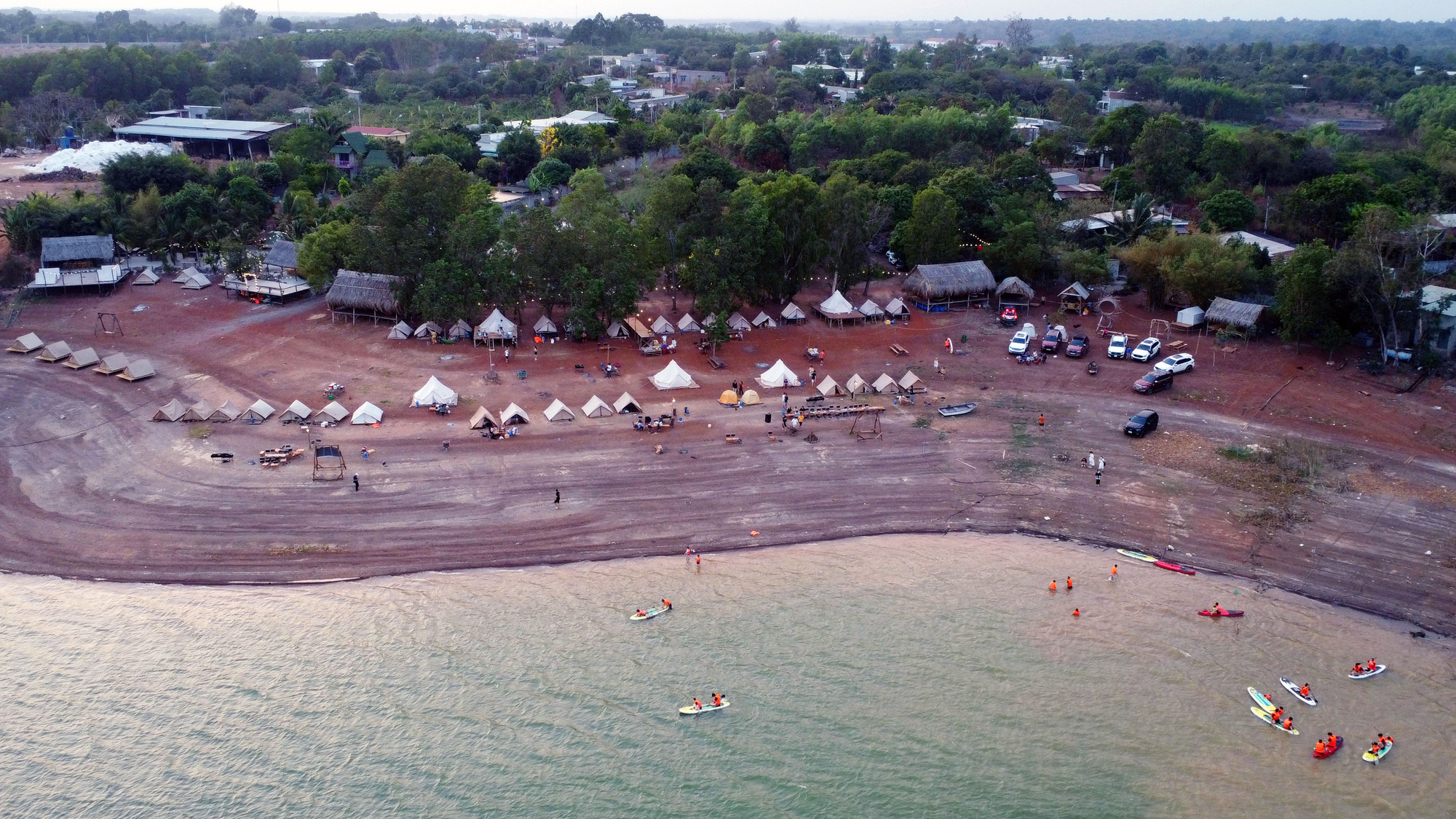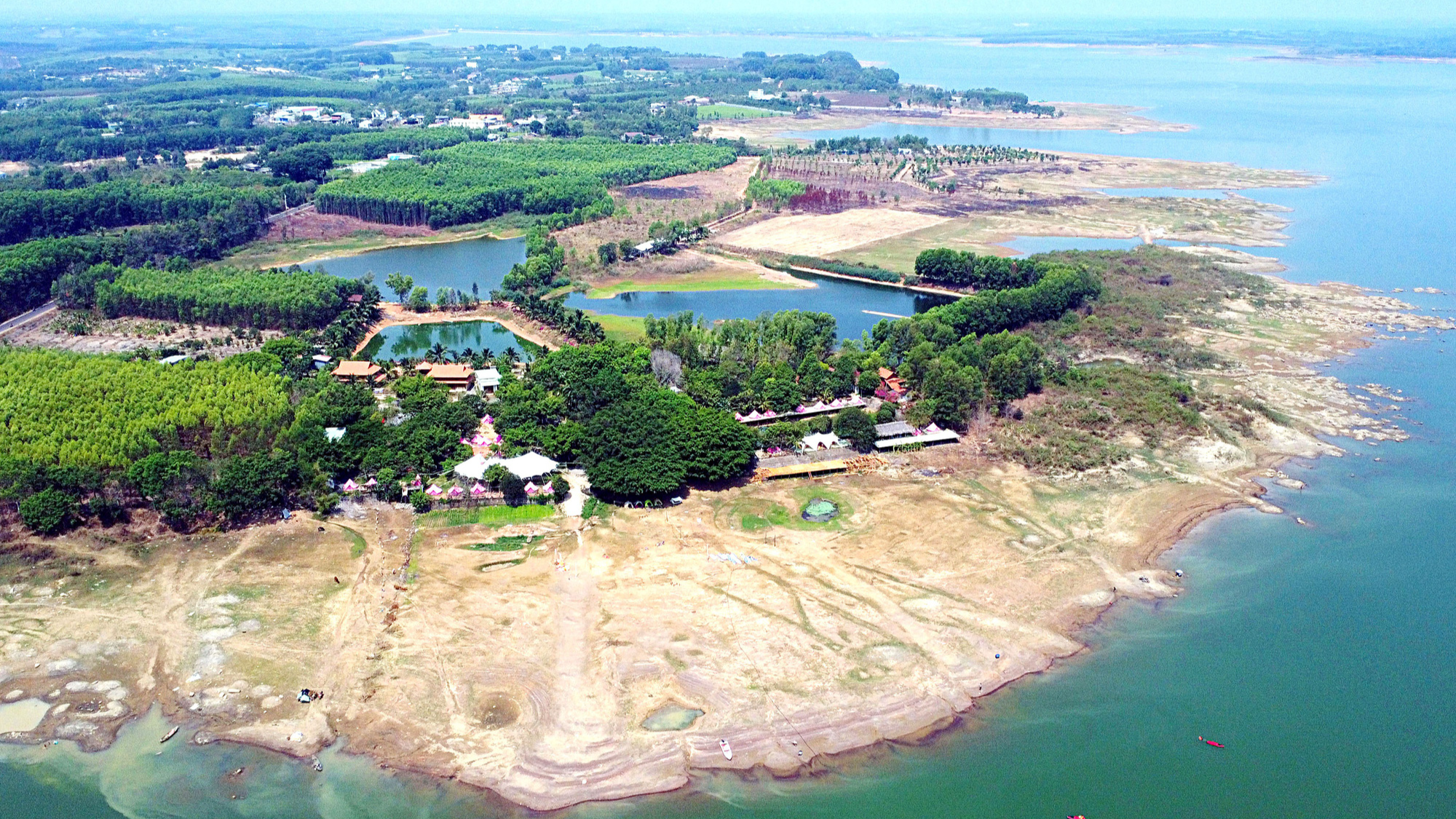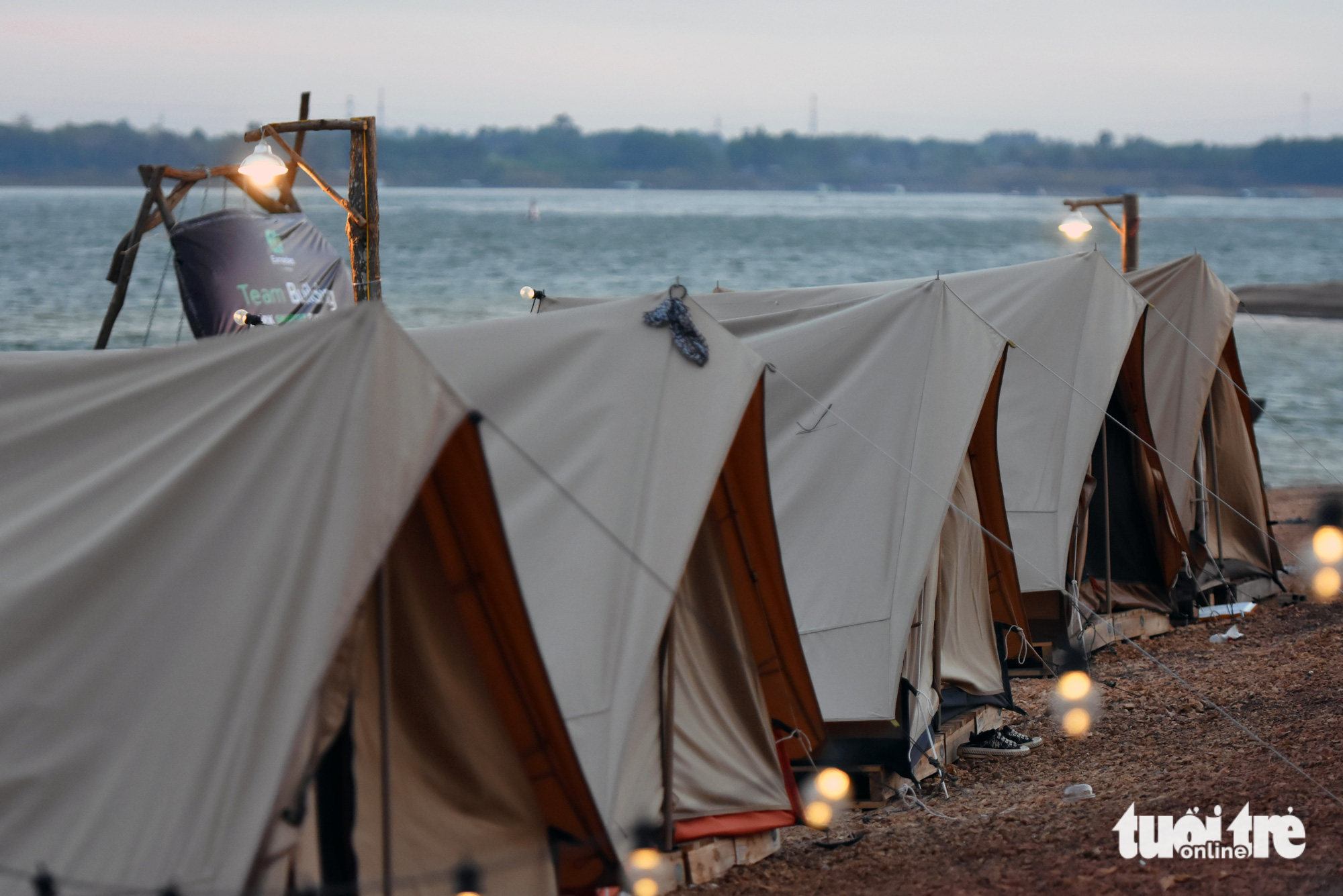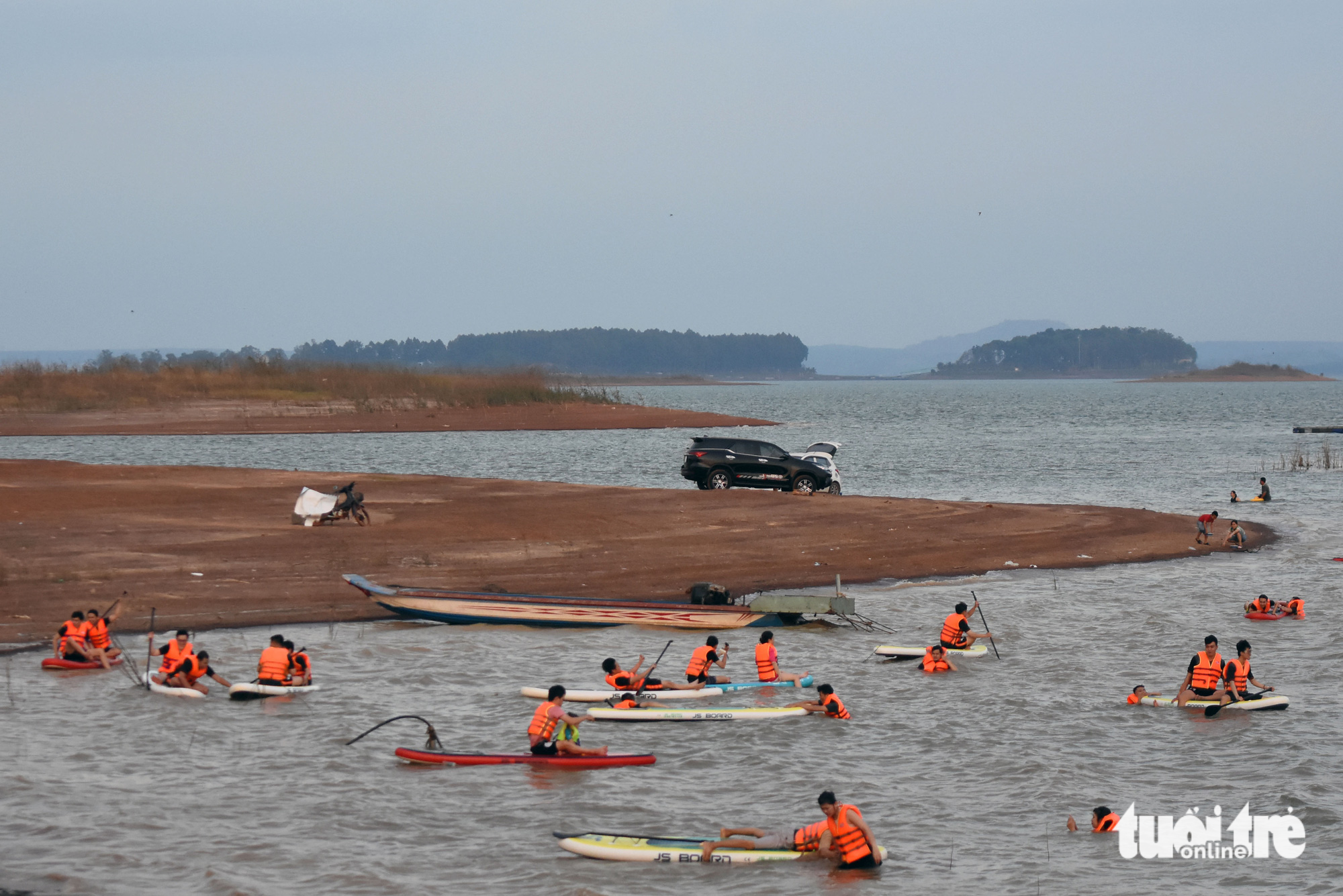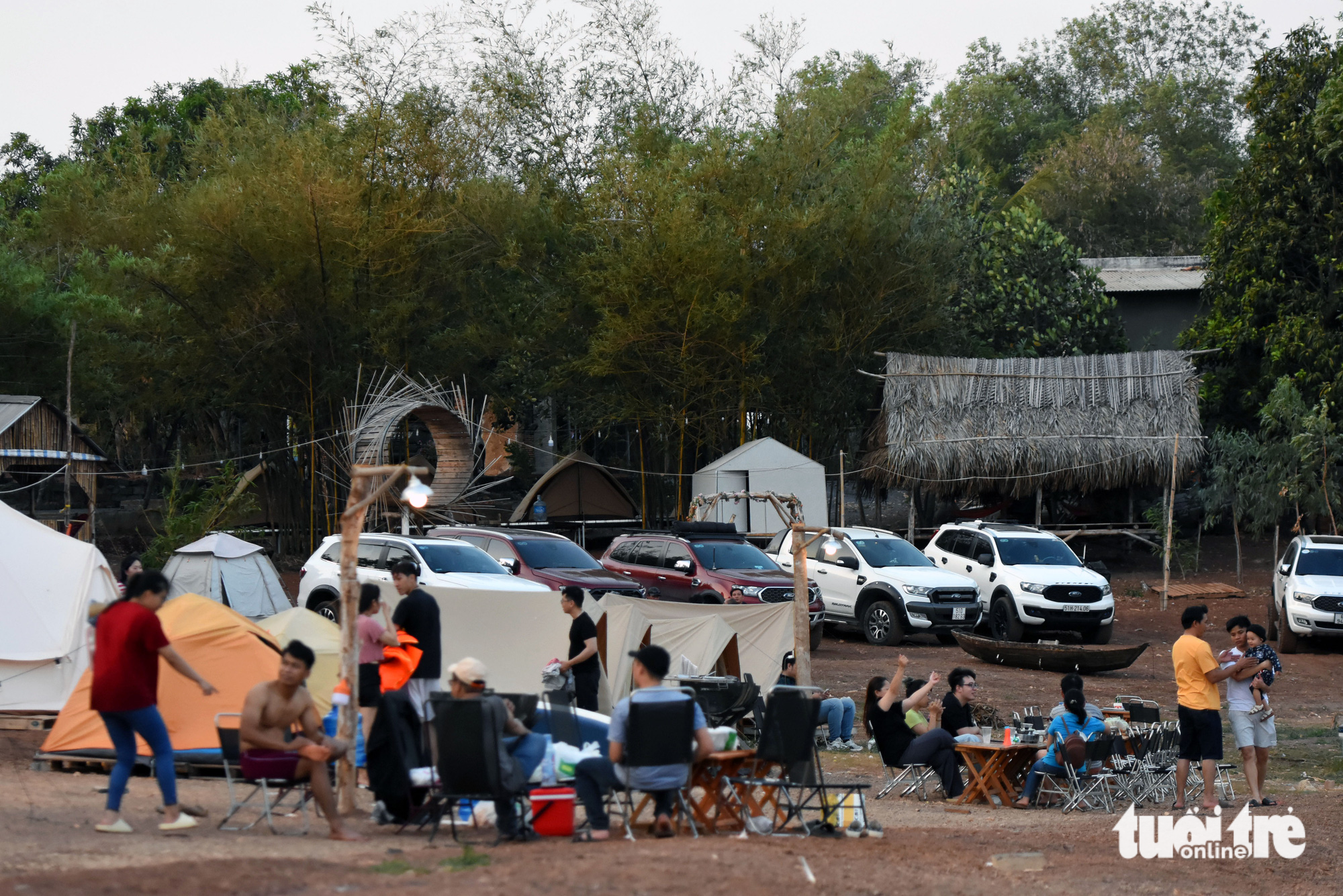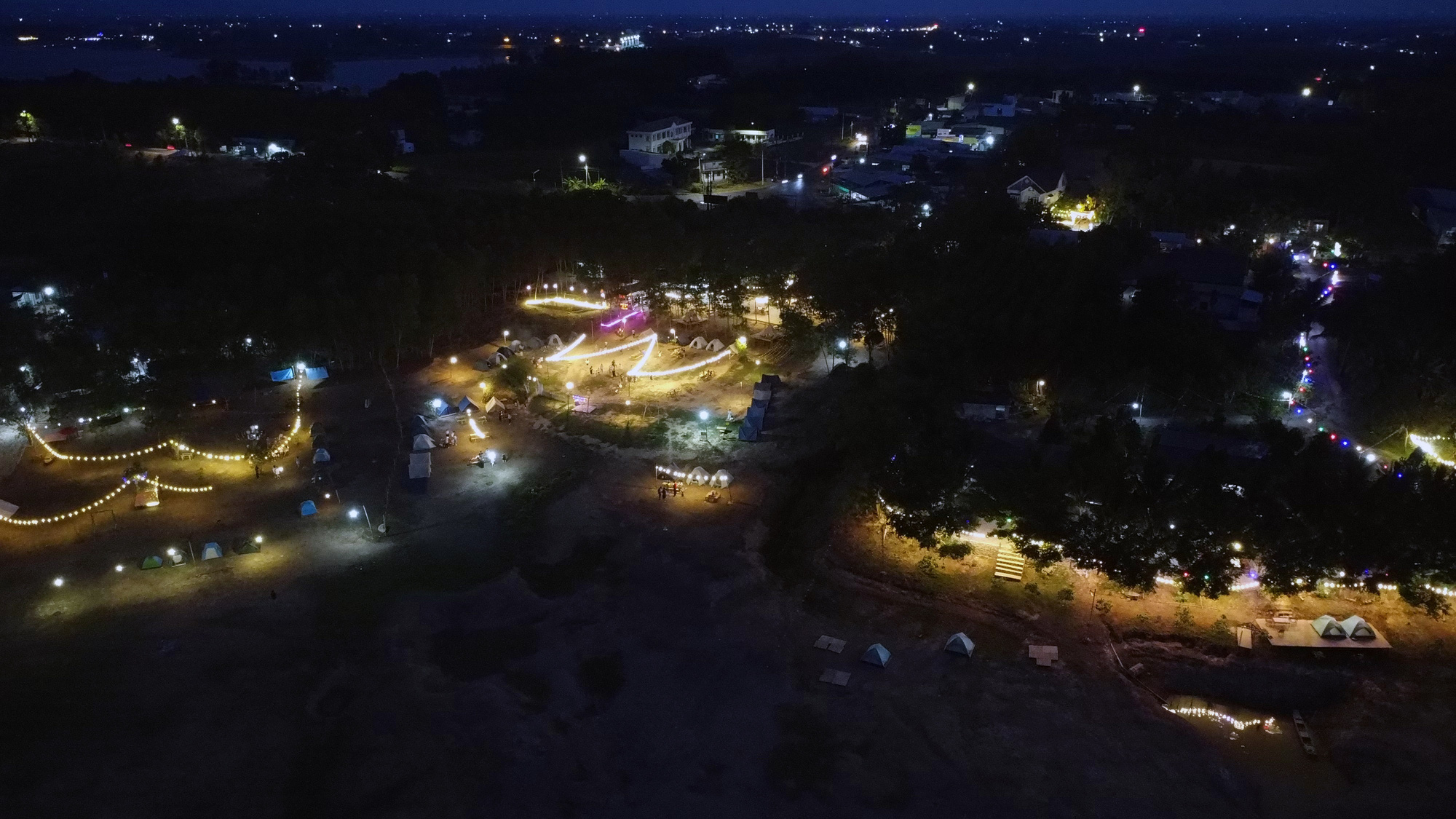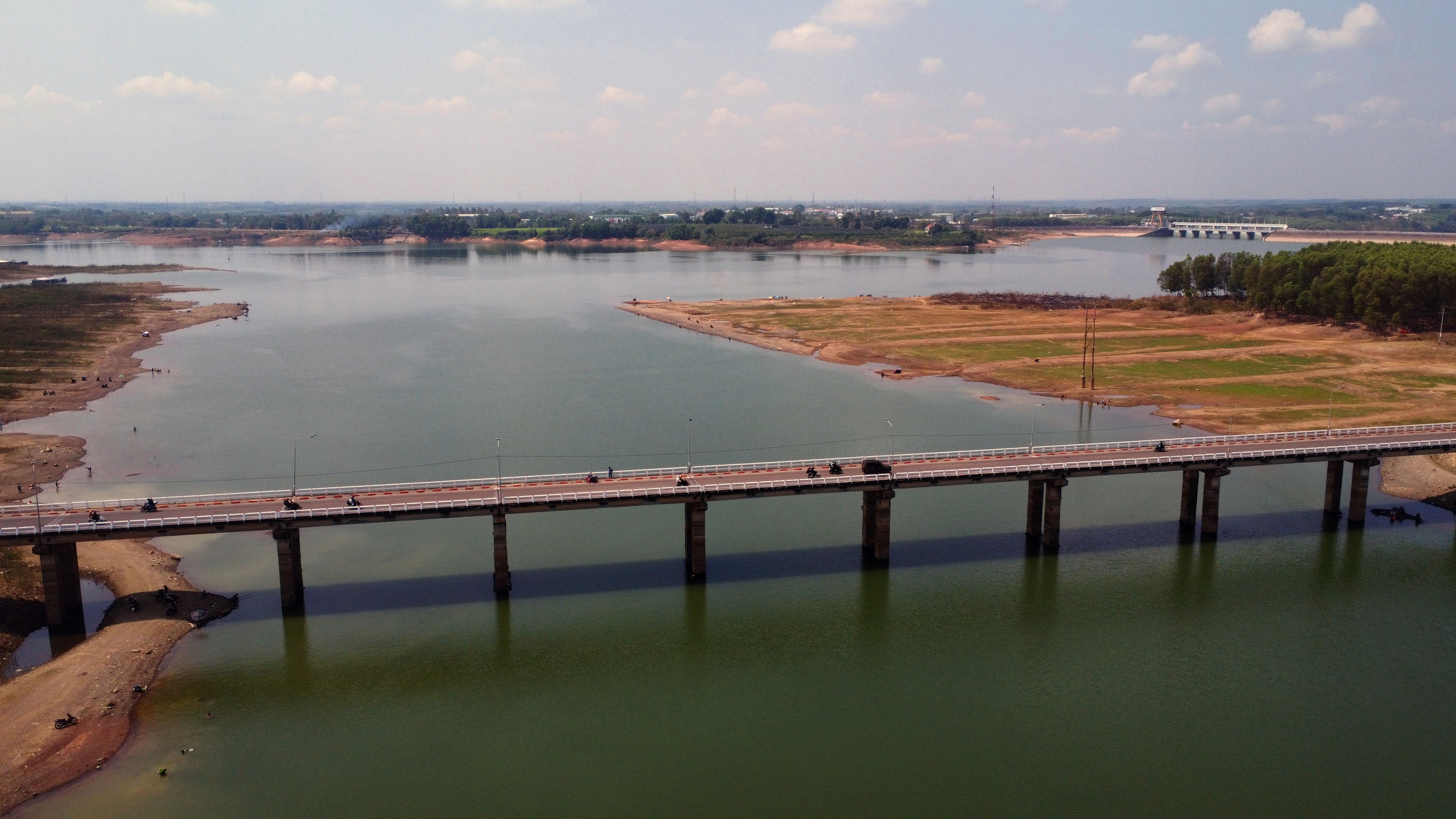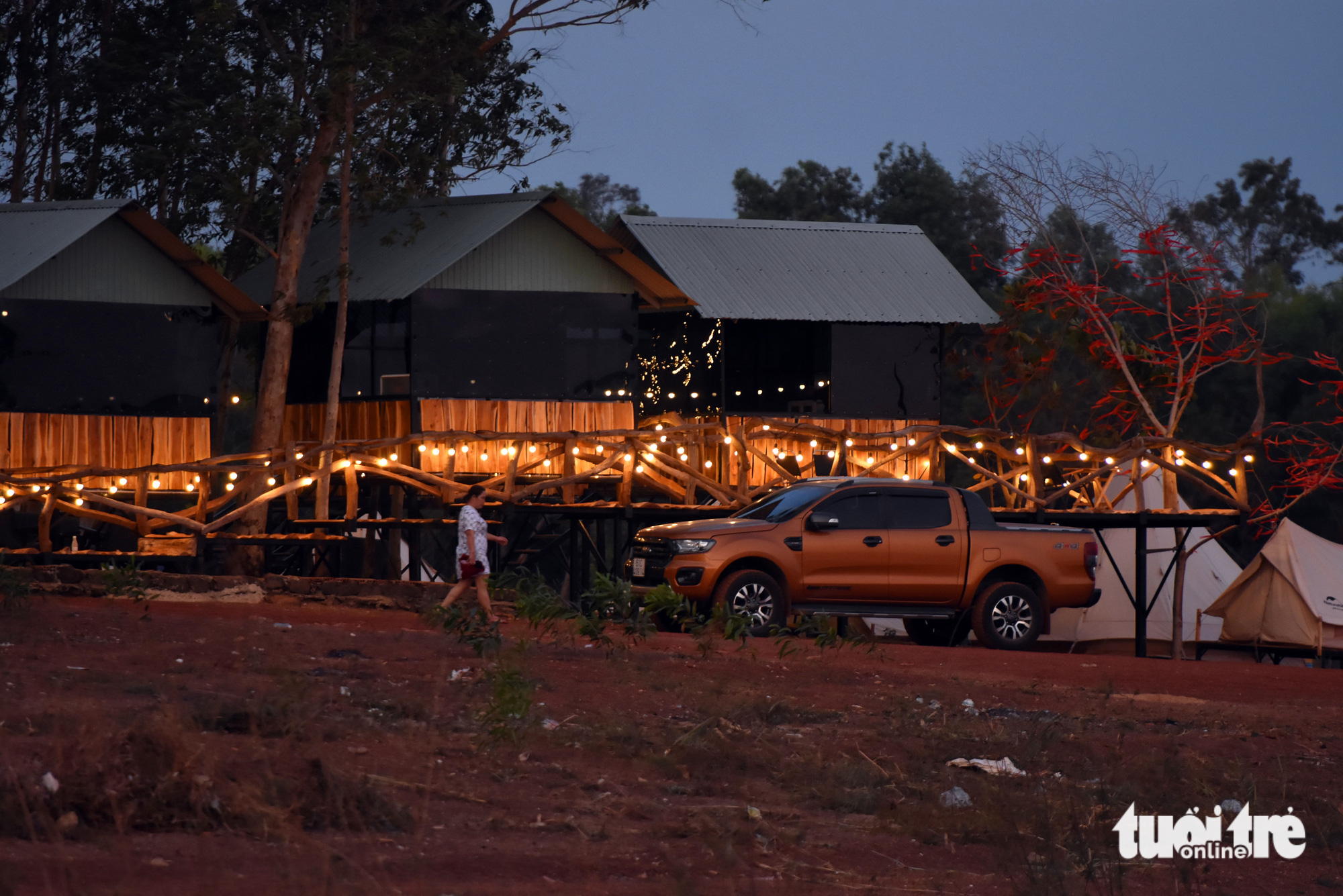The mushrooming of unauthorized tourism activities surrounding Tri An Hydropower Reservoir in Dong Nai has raised concerns over possible pollution of the water supply to over 10 million residents of the southern Vietnamese province and neighboring Binh Duong Province as well as Ho Chi Minh City.
As observed by Tuoi Tre (Youth) newspaper reporters, there are currently more than 50 unpermitted tourism sites on agricultural land and floodplain areas around the lake in Dong Nai’s Vinh Cuu District, where the issue has been most rampant, besides other districts such as Thong Nhat, Dinh Quan, and Tan Phu.
|
|
| An aerial view of a floodplain area surrounding Tri An Hydropower Reservoir in Dong Nai Province, southern Vietnam. Photo: A Loc / Tuoi Tre |
These sites offer accommodations, camping, and stand-up paddle board services to travelers who like to appreciate the pristine scenery.
Many temporary houses, restaurants, and parking lots have been constructed there without any approval from local authorities.
|
|
| Tents are illegally set up on a floodplain area surrounding Tri An Hydropower Reservoir in Dong Nai Province, southern Vietnam. Photo: A Loc / Tuoi Tre |
Tri An Lake currently supplies water to the Tri An Hydropower Reservoir, which has an installed capacity of 400MW, and to Dong Nai, Ho Chi Minh City, and Binh Duong, meeting about 70 percent of the demand of over 10 million people living in the three southeastern localities, according to Nguyen Quang Phuong, chairman of Vinh Cuu District.
Phuong is concerned that the operation of the aforementioned tourism activities poses a threat to the environment at the lake.
|
|
| Visitors try stand-up paddle board services at Tri An Hydropower Reservoir in Dong Nai Province, southern Vietnam. Photo: A Loc / Tuoi Tre |
“Unless proper measures are taken, environmental pollution will affect more than 10 million people in the long run,” Phuong said, adding that local authorities have ordered the grassroots levels to take responsibility for any unapproved tourism businesses.
Nguyen Hoang Hao, director of the Dong Nai Nature and Culture Reserve, which manages the Tri An Lake, stated that developing temporary housing for tourism purposes in the lake area is against regulations.
|
|
| Travelers enjoy their time at a camping site illegally established in a floodplain area surrounding Tri An Hydropower Reservoir in Dong Nai Province, southern Vietnam. Photo: A Loc / Tuoi Tre |
According to Hao, local residents who signed contracts with his reserve to plant forests and long-term crops in the lake area have breached the agreements.
“They are prohibited from building temporary shelters and engaging in any activities that may affect the forest land,” he said.
|
|
| An aerial view of a floodplain area lit by the glow of lights from unauthorized tourism sites surrounding Tri An Hydropower Reservoir in Dong Nai Province, southern Vietnam. Photo: A Loc / Tuoi Tre |
Many owners of the illegally-built tourism sites have made excuses that developing tourism activities at Tri An Lake both satisfies a genuine demand from the tourists and brings many benefits to local residents, such as increasing employment levels and promoting local agricultural products.
They have called on local authorities to allow the operation of the existing facilities while creating specific mechanisms and policies for their businesses, so that they can avoid violations.
|
|
| An aerial view of the Chien Khu D Bridge crossing Tri An Hydropower Reservoir in Dong Nai Province, southern Vietnam. Photo: A Loc / Tuoi Tre |
Regarding this request, Hao said that there has been a plan to develop a national tourism project on the lakeside land and islets in the lake.
Once the project is approved, Hao’s reserve will select an investor to collaborate with local residents to operate tourism activities in accordance with the plan.
|
|
| Accommodations are illegally established on agricultural land surrounding Tri An Hydropower Reservoir in Dong Nai Province, southern Vietnam. Photo: A Loc / Tuoi Tre |
“The province’s objective is to develop large-scale, high-value tourism activities, rather than the small-scale and unregulated ones currently in operation,” Hao said.
The official added that his reserve will cooperate with local authorities to dismantle unauthorized tourism sites and terminate afforestation contracts with households that violate regulations.
Like us on Facebook or follow us on Twitter to get the latest news about Vietnam!



